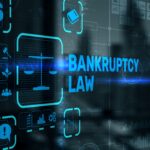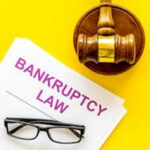Monthly Archives: January 2024

Should I Continue Paying My Bills After Filing for Bankruptcy?
When you file for bankruptcy, you might be wondering: should I continue paying my bills once I file my bankruptcy petition? The answer to that question is more complicated than a simple “yes” or “no” answer, and the answer will depend upon your particular circumstances, the types of bills you have, and the type… Read More »

New Discharge Process Presents “Opportunity” Amidst Student Loan Crisis
Floridians, along with many Americans across the rest of the country, have been struggling with student loan debt. While many of those borrowers received a reprieve during the lengthy federal student loan payment pause, that pause ended recently and borrowers again owe monthly student loan payments. In the past, before the student loan payment… Read More »

Can a Creditor Violate the Automatic Stay and Take Collection Actions Against Me?
Are you considering a bankruptcy filing? You should know that, as soon as you file for bankruptcy, the automatic stay will apply to your case. The automatic stay is an injunction that stops creditors or debt collectors from continuing with any existing collection actions against you and initiating any new collection actions against you…. Read More »

Can My Business File for Bankruptcy Without Impacting My Personal Finances?
Is your South Florida business struggling, and is bankruptcy looking like a possibility in the future? If so, you are likely wondering: can my business file for bankruptcy without impacting my personal finances? For small business owners, understanding the financial and legal relationship between the business and the business owner (or owners) with regard… Read More »

Student Loan Discharges in Chapter 13 Bankruptcies
When a person in South Florida files for Chapter 13 bankruptcy, they are often filing for this type of bankruptcy because they have secured property that they want to keep (such as an automobile), they want to stop a foreclosure and remain in their home (which Chapter 13 allows a person to do), and/or… Read More »

Common Errors to Avoid in a Bankruptcy Case
Bankruptcy cases are extremely complicated, and business owners and individual debtors alike often make errors when they decide to handle their bankruptcy cases on their own. Depending on the error, a mistake in a bankruptcy case can cause delays and problems, and in some circumstances, a mistake can have much more serious consequences. Indeed,… Read More »

Why Does the Type of Debt Matter in Bankruptcy?
In any given bankruptcy case, you will need to identify debts that are secured and unsecured, and you will need to think about the dischargeability of your debts and whether any of your debts are co-signed. Why does the type of debt you have ultimately matter? There are many reasons that the type or… Read More »

Do I Need to Know About Exemptions in a Reorganization Bankruptcy?
If you have started looking into a consumer bankruptcy filing, or if you have a friend or family member who recently filed for bankruptcy, you might know a little bit about the importance of bankruptcy in exemptions. In a Florida bankruptcy case, exemptions are available under state law, and they allow debtors to exempt… Read More »

Retirement and Bankruptcy: Things to Consider
Deciding to file for personal bankruptcy can be a fraught decision under any circumstances, and especially after retirement. Yet many Floridians who have retired do make the decision to file for bankruptcy, often as a result of unexpected debt or other changes in financial circumstances. According to the Population Reference Bureau, Florida has the… Read More »

Can Alimony Debt Be Discharged in Bankruptcy?
When you are filing for individual bankruptcy, one of your first questions is likely to concern the types of debts that are dischargeable. Whether you are planning to file for Chapter 7 or Chapter 13 bankruptcy, it is important to be sure that the debts you are seeking to have discharged are actually dischargeable…. Read More »



